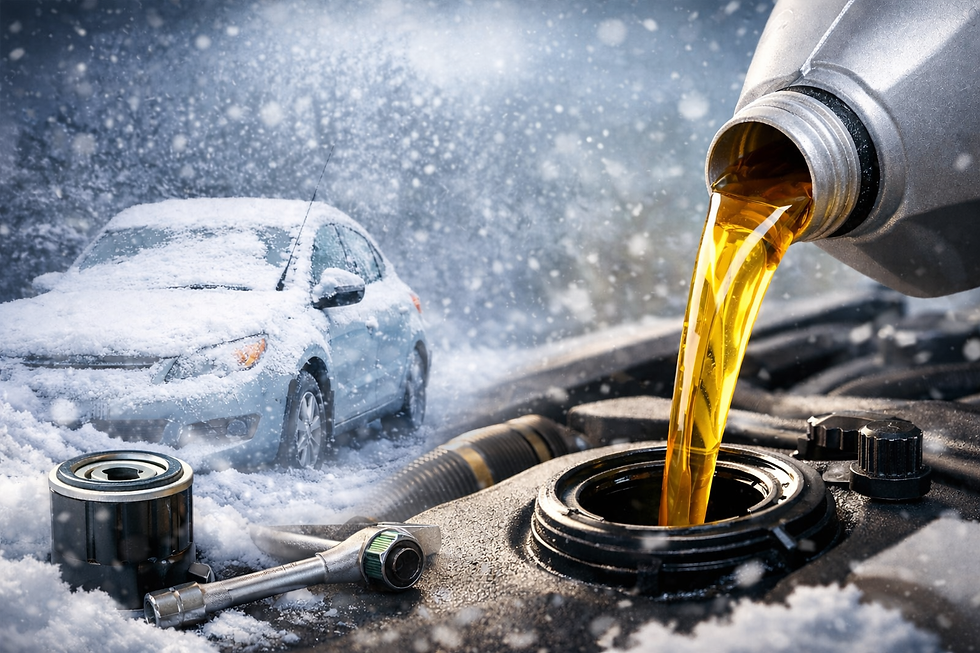Understanding Suspension Noises and Issues
- jescayeargan
- Nov 25, 2025
- 2 min read

Your vehicle’s suspension system does far more than just deliver a smooth ride—it keeps your tires planted on the road, helps maintain control, and absorbs the bumps, dips, and potholes you encounter every day. So when something starts making noise, it’s not just annoying—it’s a warning.
Understanding what those sounds mean can help you catch problems early, avoid costly repairs, and keep your vehicle safe on the road. Here’s a breakdown of the most common suspension noises, what causes them, and why you shouldn’t ignore them.
Common Suspension Noises and What They Mean
1. Clunking Over Bumps
If you hear a noticeable clunk when going over potholes or speed bumps, chances are something in your suspension is loose or worn.
Likely causes:
Worn ball joints
Loose control arm bushings
Damaged sway bar links
Strut mounts failing
Why it matters:Clunking often means metal-on-metal contact. The longer it goes unchecked, the more damage it can cause.
2. Squeaking or Creaking
These sounds usually show up at low speeds or when turning into driveways.
Likely causes:
Dry or worn bushings
Ageing control arms
Weak shocks or struts
Why it matters:Bushings help absorb movement and reduce vibration—when they’re failing, your ride quality and handling take a hit.
3. Rattling While Driving
A light rattling that gets worse on rough roads can indicate something is loose.
Possible culprits:
Loose heat shields (often mistaken for suspension issues)
Worn sway bar links
Loose bolts or brackets
Why it matters:Even small parts can create big problems if they separate or break while you’re driving.
4. Knocking When Turning
If the noise only happens while turning, your steering or suspension joints could be failing.
Likely causes:
Failing tie rod ends
Worn CV joints
Damaged strut bearings
Why it matters:These components affect steering precision—and ignoring them can make your vehicle unsafe.
5. Boing or Spring-Like Noises
If you hear a “twang,” it could be related to your coil springs.
Likely causes:
Broken or shifting coil springs
Improper spring seating
Why it matters:Broken springs can dramatically affect ride height and handling.
Other Signs Your Suspension Needs Attention
Even without noise, your suspension may be failing. Watch for:
Uneven tire wear
Excessive bouncing after bumps
Vehicle pulling to one side
Sagging on one corner
Steering that feels loose or unstable
Any of these symptoms are signals to get your vehicle inspected as soon as possible.
Why You Shouldn’t Ignore Suspension Noises
Ignoring suspension issues can lead to:
Premature tire wear
Steering problems
Decreased braking performance
Costly repairs from worn-out components
Unsafe driving conditions
Your suspension is a system—when one part wears out, others begin to follow. Addressing issues early saves money and keeps you safer.
When to Get Your Vehicle Checked
If you hear any abnormal noise—clunk, squeak, rattle, or knock—it's best to have a professional technician diagnose the issue. At Yeargan’s Automotive, we use thorough inspection techniques to pinpoint the exact cause and provide honest, reliable repair recommendations.




Comments